Ahhhh, multiplication! Just when your child has their addition and subtraction facts down, we add this new dynamic to their math – MULTIPLICATION! Each one of my children felt like they were starting all over in math when we started learning multiplication.
One of my children, in particular, struggled with multiplication. We decided to take some time off math lessons and focus on learning his multiplication math facts. Enter the game Multiplication Memory, game P10 in the Math Card Games book. We spent several weeks working on various multiplication facts by playing this game almost exclusively. If your child is starting to learn his multiplication facts, this is an excellent game to start with.
The instructions for this game suggests two players. However, my children also play this game independently. You will need the cards numbered from 1 to 10 from the Basic Card Deck and a set of the Multiplication Card Deck, using the multiples you want your child to work on. You will also want an additional card from the Basic Card Deck representing the multiple. For example, if you are working on the multiples of seven, you will need an additional 7 card from the Basic Card Deck.
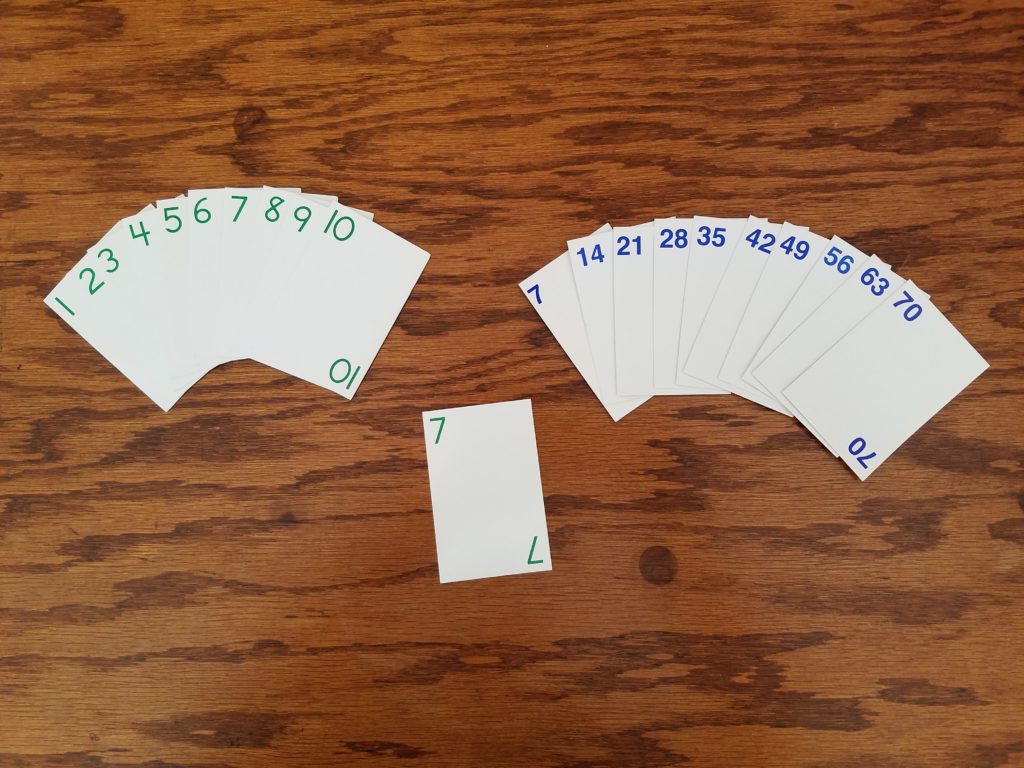
You will also want two index cards or two small slips of paper. On one card you will write the multiplication sign, ×, and on the other card you will write the equal sign, =.
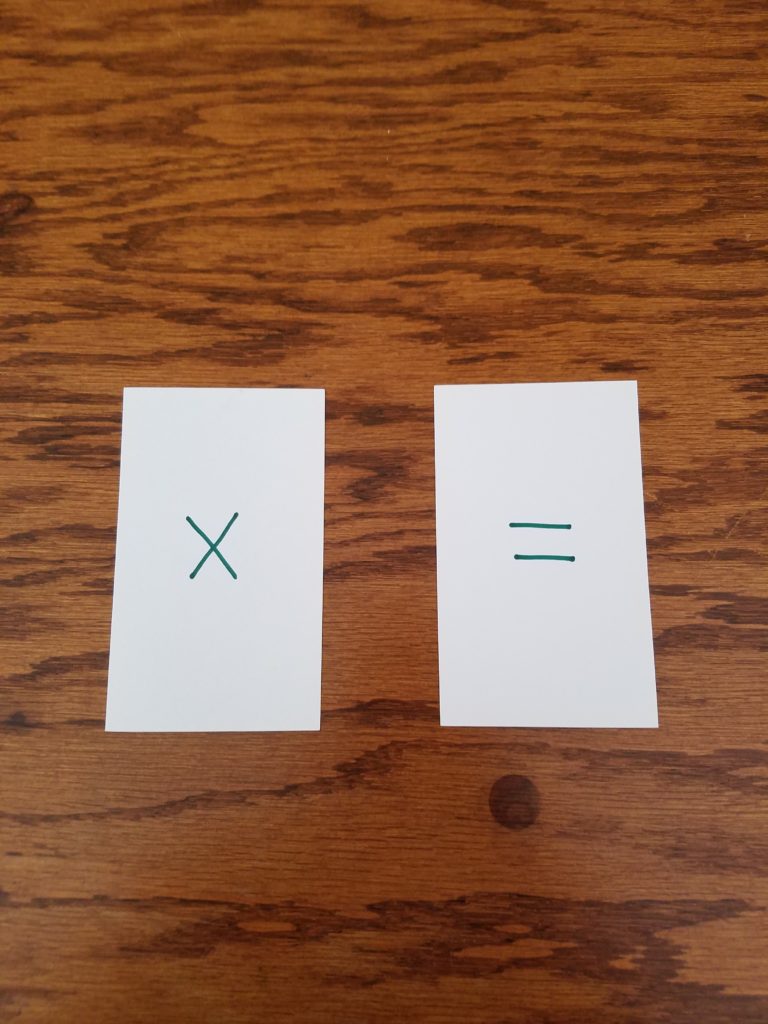
As with all the games in RightStart Math, you will want to have a resource available that your child can use to look up a fact, if needed. For this game, I would recommend using either the AL Abacus or the multiplication envelopes. If your child comes across an equation he does not know, have him look up the answer using his preferred resource (NOT the calculator!). This is a very important step as your child learns by playing these card games.
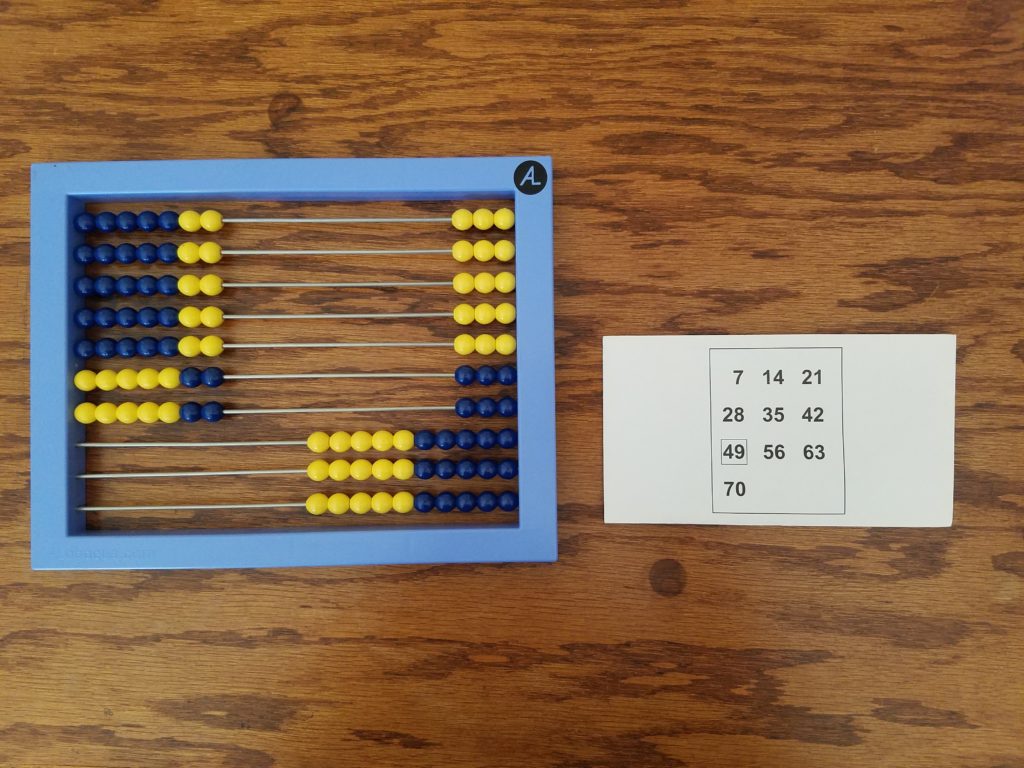
Be sure to shuffle both the multiplication cards and the basic cards separately. Then lay out your cards as shown below.
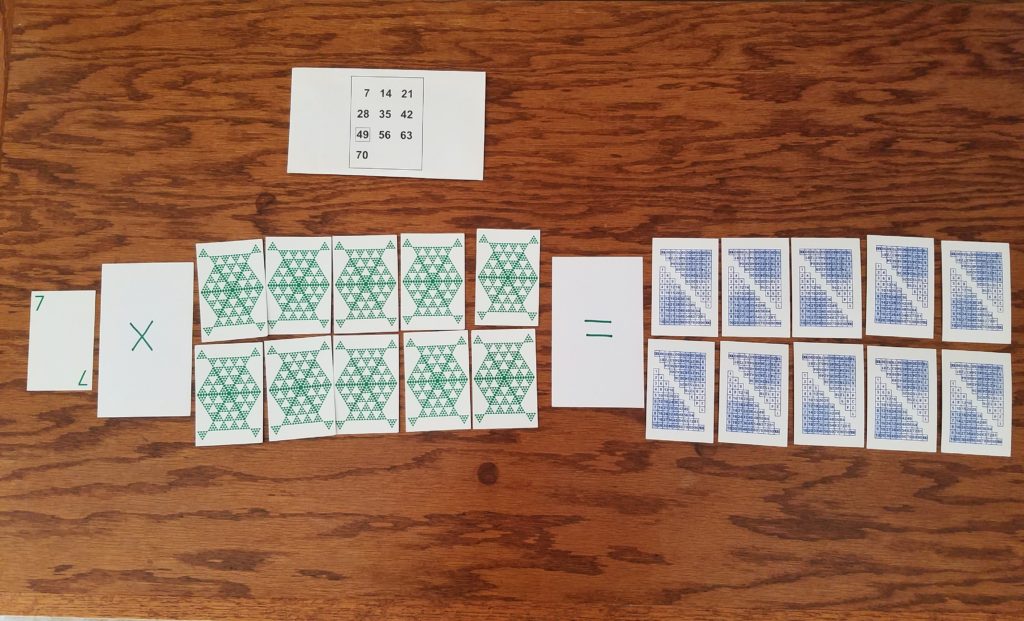
The first player will turn over one basic number card and then say the equation. For example, when working on the multiples of seven, if the child turns over a three card, he will say, ‘7 times 3 equals 21.’
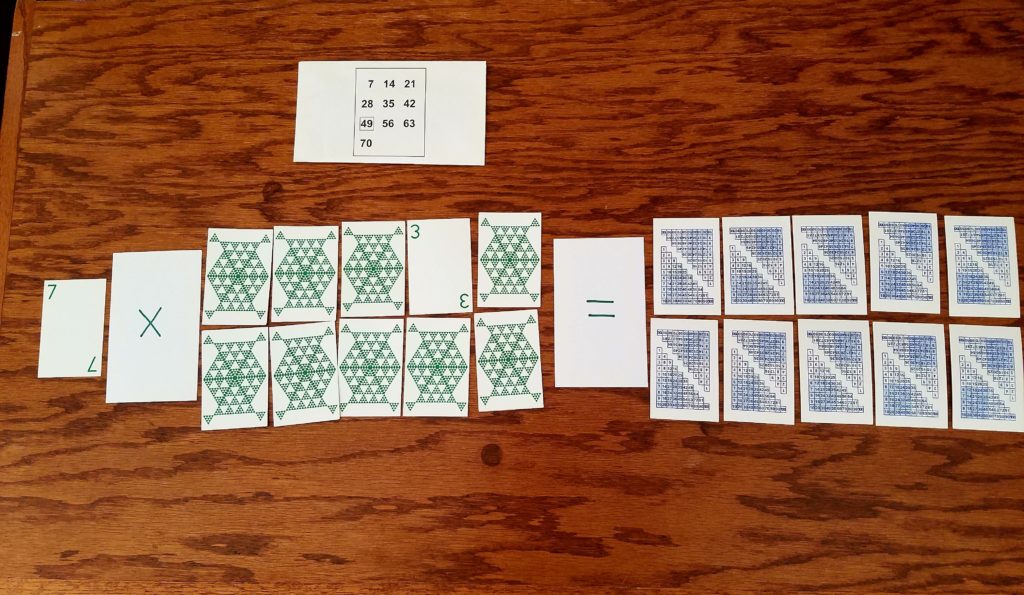
Then the first player will try to locate the 21 card. If he finds it, he gets to collect both cards and takes another turn.
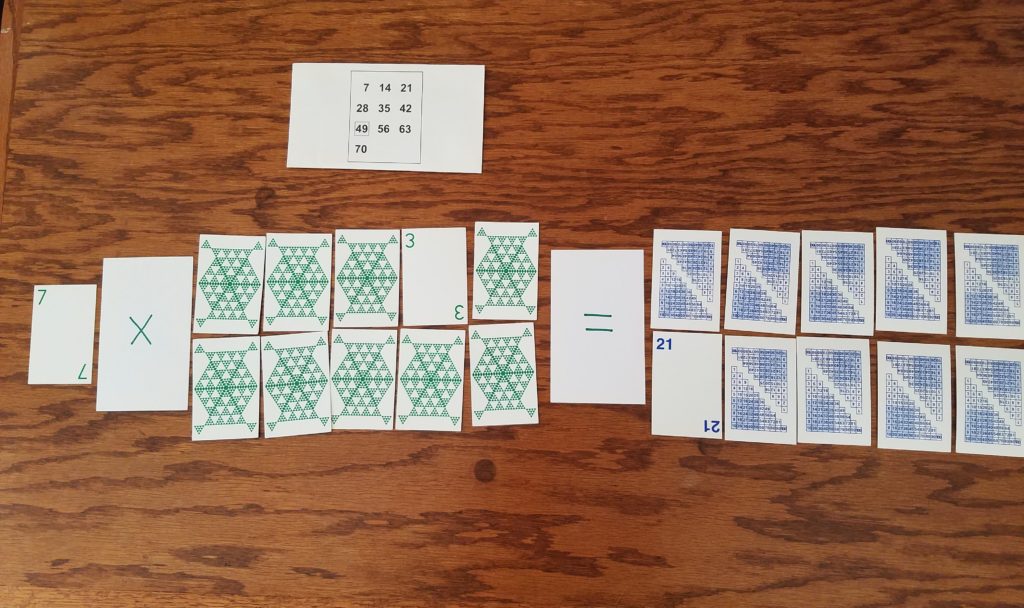
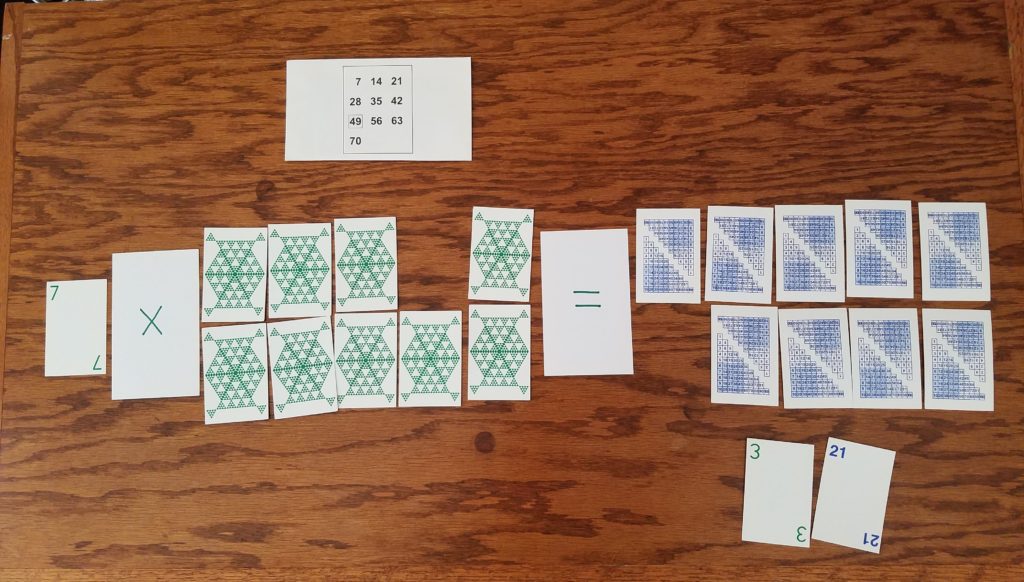
If he doesn’t turn over the 21, then he flips both cards back over and the second player now takes a turn.
The game will continue until all the cards have been collected.
This really is an excellent game to help your child learn and practice his multiplication facts. I hope you find as much enjoyment and success as we have had playing this game.
If you have a favorite game that you enjoy playing or if you would like to request a specific game to be included in this blog series, please comment below. We would love to hear from you!

Thanks for sharing this game!!